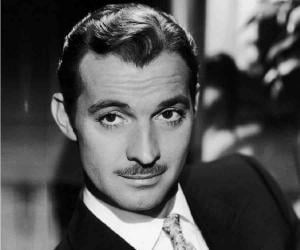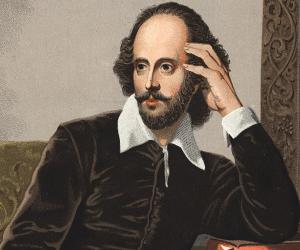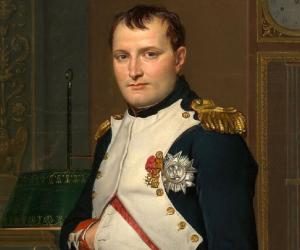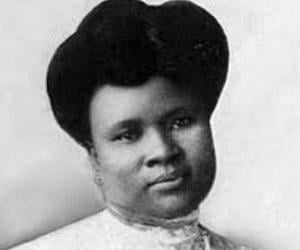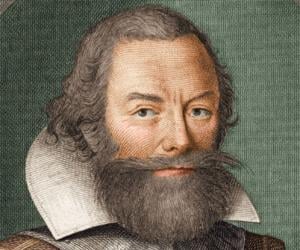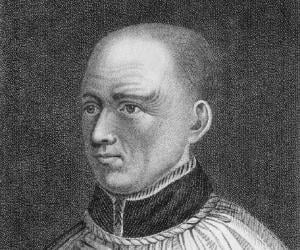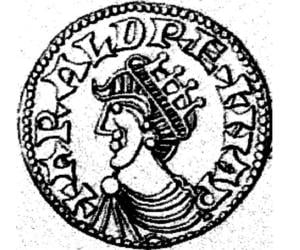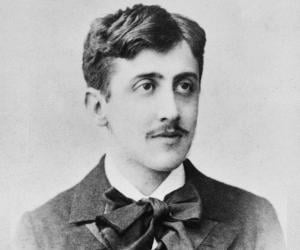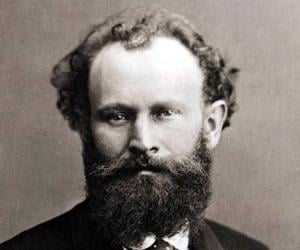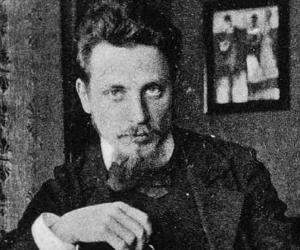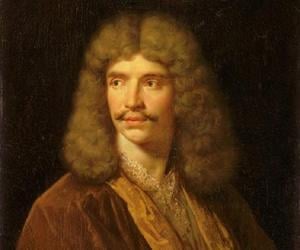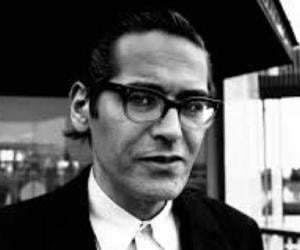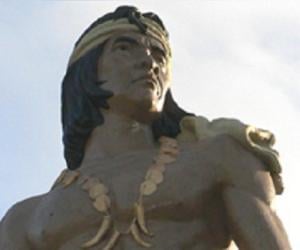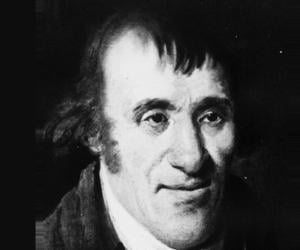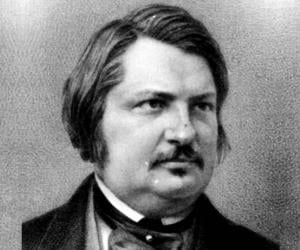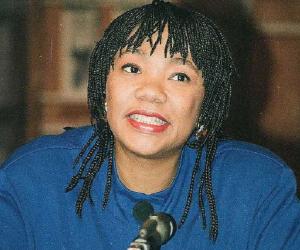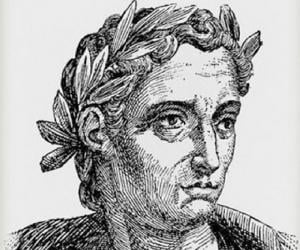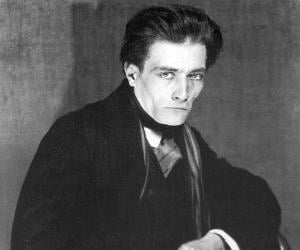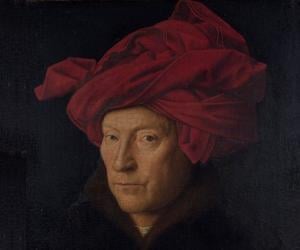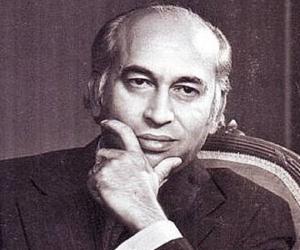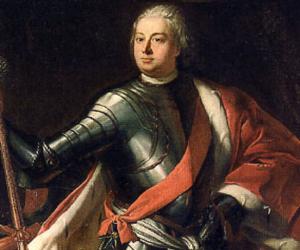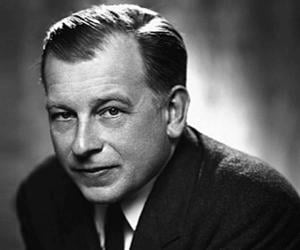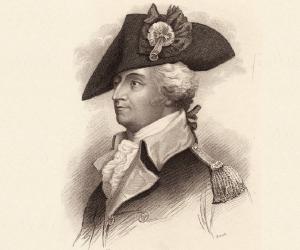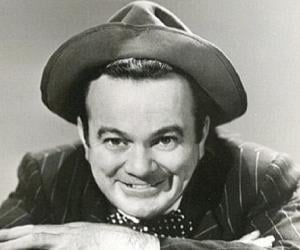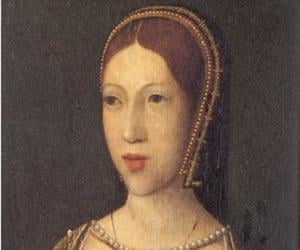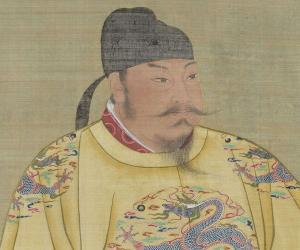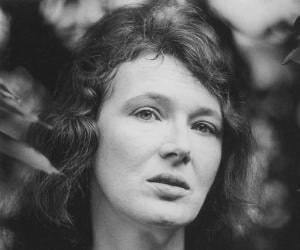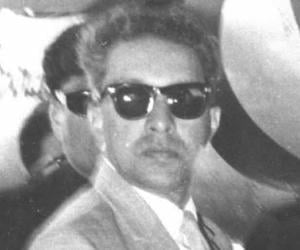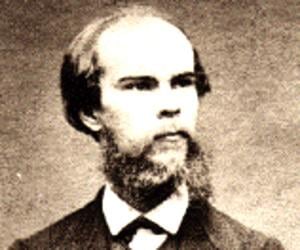English playwright, poet, and actor William Shakespeare is widely regarded as the greatest writer in the English language. He is also often called England's national poet. Many of his works have been translated into other languages and his plays continue to be produced till day. Popular during his lifetime, he acquired an iconic status after his death.
James Gandolfini was an American actor who achieved the rare feat of being identified more as the character he performed rather than as himself. Years of immaculately performing the role of a powerful crime boss for the TV series, The Sopranos, defined Gandolfini’s legacy forever as a character actor, a legacy he gracefully carried over to the big screen.
John Smith was an English explorer, soldier, colonial governor, author, and Admiral of New England. In the early-17th century, Smith played a major role in the establishment of the first indissoluble English settlement in America, which came to be known as the English colony at Jamestown. Apart from helping Jamestown survive various challenges, Smith's leadership also helped the colony flourish.


Harald Sigurdsson, or Harald, was the king of Norway from 1046 to 1066. He also made an aim for the Danish throne and the English throne. He was a mercenary and a military leader before taking over as the king. His death marked the end of the Viking Age.
Jack Swigert was an American astronaut who flew to the moon and spent nearly six days in space. He was an engineer who also held a masters degree in business administration. He was involved in the infamous Apollo 15 postal covers incident. He ventured into politics with mixed fortunes. He was elected to the US Congress but died before being sworn in.
Marcel Proust was a French novelist, essayist, and critic best known for writing the world-renowned novel In Search of Lost Time, which was published between 1913 and 1927 in seven parts. Many writers and critics regard him as one of the 20th century's most influential and important authors.
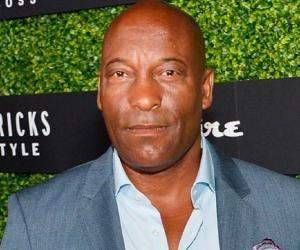
Édouard Manet was a French painter who played a key role in the transition to Impressionism from Realism in the 19th-century. Manet was one of the first artists from his generation to paint modern life. His early masterworks, such as Olympia, served as rallying points for young and aspiring impressionist painters. His works continue to influence painters around the world.
Bohemian-Austrian poet and author Rainer Maria Rilke is best remembered for his numerous poetry collections and his only novel, The Notebooks of Malte Laurids Brigge. His works contain metaphors, contradictions, and elements drawn from Greek mythology. Though most of his works were in German, he had also written in French.
Moliere was a French poet, playwright, and actor. Considered one of the greatest French-language writers of all time, Moliere's plays are often performed at the Comédie-Française and have been translated into several languages. Moliere had a huge impact on the French language and is widely regarded as the creator of modern French comedy.
Bill Evans was an American composer and jazz pianist. Many of his compositions and other works continue to influence jazz pianists and are played and recorded by several artists. His work has influenced players like Chick Corea, John McLaughlin, Steve Kuhn, and Michel Petrucciani among many other musicians. Evans is an inductee of the Down Beat Jazz Hall of Fame.

As a child, Ethan Allen was fond of deciphering passages from the Bible. He grew up to co-establish Vermont and led the Green Mountain Boys during the American Revolutionary War. After failing to achieve Vermont’s separation from New York, he tried to unite Vermont with Canada.

Honoré de Balzac was a French playwright and novelist. Since his works gave a detailed, unfiltered representation of society, Honoré de Balzac is generally considered one of the founders of realism and an important figure in European literature. Renowned for creating multi-faceted characters, Balzac influenced several popular writers like Charles John Huffam Dickens, Émile Zola, Henry James, and Gustave Flaubert.
African American activist, Yolanda King, was the first-born child of civil rights leaders Martin Luther King Jr. and Coretta Scott King. Exposed to social justice activism at a young age, she grew up to be an outspoken supporter of civil rights and LGBTQA+ rights. She was also known for her artistic endeavors. She died of heart disease at 51.

Pliny the Younger was an author, lawyer, and magistrate of Ancient Rome. Although Pliny the Younger wrote several letters, only 247 of them have survived and are of great historical value as they provide an insight into the relationship between provincial governors and the imperial office at that time.

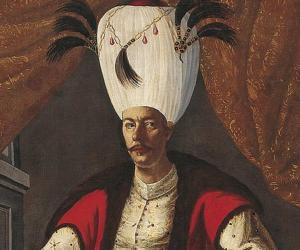
Mehmed IV reigned as the Sultan of the Ottoman Empire from 8 August 1648 to 8 November 1687. After ascending the throne at age six following the dethronement of his father in a coup, Mehmed IV went on to become the second-longest reigning emperor in the history of the Ottoman Empire after Suleiman the Magnificent.
Antonin Artaud was a French writer, poet, dramatist, and theater director. Known for his raw, surreal, and transgressive themes, he was a major figure in 20th-century theater. He outlined his theories in the Theatre of Cruelty movement, expressed in the form of essays and plays. He died of cancer at the age of 51.
Jan van Eyck was a painter best remembered for his Early Northern Renaissance art. He was one of the early innovators of Early Netherlandish painting and one of the most significant painters of his generation. A highly influential painter, Jan van Eyck's style and techniques were adopted by the Early Netherlandish painters.
Pakistani barrister Zulfikar Ali Bhutto served as the prime minister of Pakistan from 1973 to 1977. He had also been the president of Pakistan from 1971 to 1973. He founded and chaired the Pakistan People's Party. His reign witnessed the formation of Bangladesh and the signing of the Simla Agreement.
The Soldier King Frederick William I of Prussia is remembered for transforming his nation into a prosperous state. He was known for his simple lifestyle, as opposed to his father’s kingly excesses. His experience at the War of the Spanish Succession led him to strengthen Prussia militarily, too.
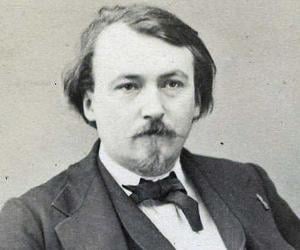
Best known for his wood-engraving, Gustave Doré was a child prodigy who began his artwork at the tender age of 5. A master lithographer and caricaturist, he began his career with Journal pour Rire. He also worked on commissions from authors such as Cervantes, Milton, and Dante.
Eero Saarinen was a Finnish-American industrial designer and architect best remembered for his impressive designs for monuments and buildings. He is credited with designing important structures, such as the Washington Dulles International Airport, the TWA Flight Center, and the Gateway Arch. He is widely regarded as one of the 20th-century's most prominent American architectures.
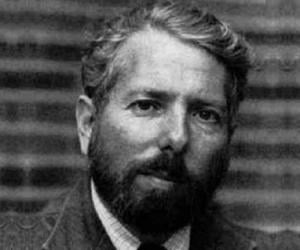
Social psychologist Stanley Milgram was inspired by the suffering of the Jews during the Holocaust to understand what drove people to harm others, and thus created his Milgram experiment. He also taught at prestigious institutes such as Harvard and Yale. His studies also included the six degrees of separation concept.
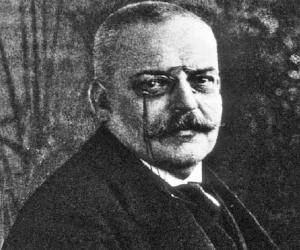
German psychiatrist and neuropathologist Alois Alzheimer is noted for identifying the first published case of presenile dementia, which his colleague and German psychiatrist Emil Kraepelin later identified as Alzheimer's disease. Alois publicly discussed his findings on brain pathology and symptoms of presenile dementia in late-1906 and penned a larger paper giving details of the disease and his findings in 1907.
Emperor Taizong of Tang was the second emperor of the Tang dynasty of China. He ruled for over two decades from 626 to 649. He is considered to be one of the greatest emperors in China's history. Under his reign, Tang China flourished. The emperor was a scholar of logic and scientific reason. He was married to Empress Zhangsun.
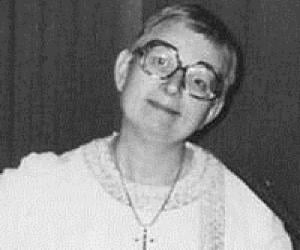
Singer-songwriter Jeanne-Paule Marie Deckers, better known as The Singing Nun, soared to fame with the Billboard-charting track Dominique. She was also a Dominican Order nun, who later took the name Sister Luc Gabriel. She often played the guitar and was accompanied by a chorus of 4 nuns.
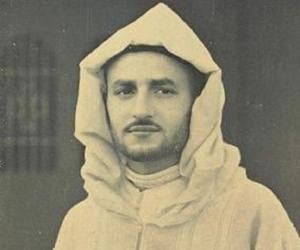
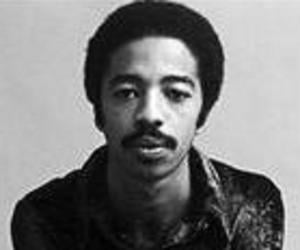

Ronnie Lane was an English musician, music producer, and songwriter. He is best remembered as the founding member of the popular rock and roll bands, Small Faces and Faces. Ronnie Lane’s work with the bands earned him a posthumous induction into the Rock and Roll Hall of Fame.
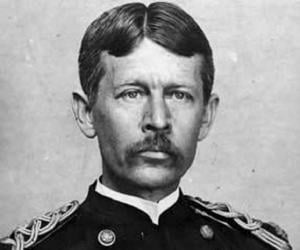
Walter Reed was a U.S. Army physician best remembered for leading a team which confirmed that yellow fever gets transmitted by a mosquito rather than by direct contact. His work went a long way in the fight against yellow fever.
Bounty hunter and reality star Beth Chapman soared to fame with the shows Dog the Bounty Hunter, Dog's Most Wanted, and Dog and Beth: On the Hunt, along with her husband, Duane "Dog" Chapman. While filming Dog's Most Wanted, she died of throat cancer, which had spread to her lungs.
Paul Verlaine was a French poet best remembered for his association with the Decadent movement and the Symbolist movement. He is regarded as one of the most important representatives of the fin de siècle in French and international poetry. His poetry served as an inspiration for composers like Gabriel Fauré, who composed several mélodies based on Verlaine's poems.
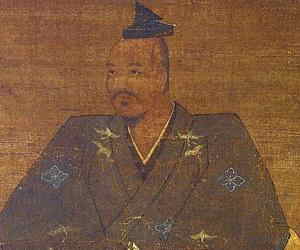
Takeda Shingen was an influential daimyo, or feudal lord of the Takeda clan, in Japan, apart from being an able military leader. Also known as the Tiger of Kai, he had long military conflicts with Uesugi and other leaders. His life inspired legendary filmmaker Akira Kurosawa’s Kagemusha.
